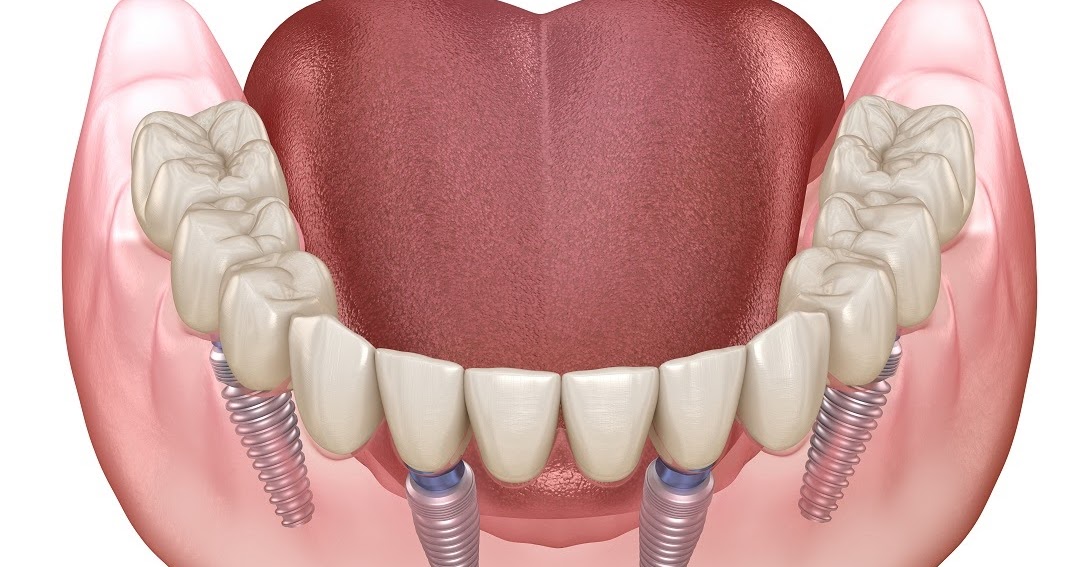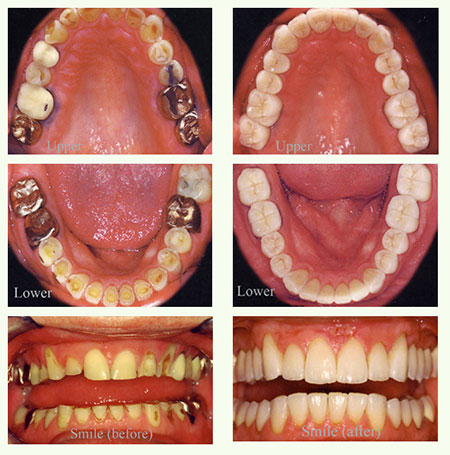
Full mouth rehabilitation with dentures offers a transformative solution for individuals missing most or all of their teeth. Dentures, also known as false teeth, are custom-made replacements designed to restore both function and aesthetics. In this article, we will delve into the process and benefits of full mouth rehabilitation with dentures, helping you regain confidence in your smile and overall oral health.
Dentures are prosthetic devices designed to replicate the appearance and function of natural teeth.
The process begins with a comprehensive oral examination, evaluating gums, existing teeth, and bone structure.
Depending on your needs, options include complete dentures or flexible dentures.
Complete dentures replace all teeth in either the upper or lower jaw.
Flexible dentures offer a lighter, more comfortable alternative that adjusts to mouth movements.
After assessment, impressions of your mouth are taken to create a precise mold.
This mold serves as a template for fabricating dentures that fit securely and look natural.
Modern dentures are typically crafted from acrylic resin for durability and a lifelike appearance.
Flexible dentures utilize thermoplastic materials for enhanced comfort and adaptability to mouth contours.
- Dentures are recommended for individuals who have lost multiple teeth due to decay, gum disease, injury, or congenital conditions.
- Candidates for dentures often face challenges with chewing, speaking clearly, or maintaining facial muscle structure after tooth loss.
- Full mouth rehabilitation with dentures aims to restore oral functionality.
- Dentures can also enhance the aesthetic appearance of one's smile.
- They are designed to improve quality of life by addressing both functional and cosmetic concerns associated with tooth loss.

Fact: Modern dentures are custom-made to fit snugly and comfortably. Properly fitted dentures should not slip when properly secured with dental adhesives or implants.
Fact: Dentures can be used by individuals of any age who have lost teeth due to injury, decay, or other dental issues. Full mouth rehabilitation with dentures can restore functionality and aesthetics regardless of age.
Fact: Advances in dental technology allow dentures to be customized to resemble natural teeth closely. Dentists work to ensure that dentures match the shape, size, and color of existing teeth for a natural appearance.
Fact: While dentures do require regular cleaning and maintenance, it is straightforward with proper instructions from your dentist. Regular brushing, soaking, and professional check-ups can keep dentures in good condition.
Fact: With proper fit and adjustment, modern dentures allow individuals to eat a wide variety of foods comfortably. However, initially, softer foods may be recommended as you adjust to wearing dentures.
Most patients adjust to their new dentures within a few weeks. Initial discomfort and difficulty in speaking or eating are common but usually subside as you adapt.
Yes, you can eat most foods with dentures. However, it’s advisable to start with soft foods and gradually reintroduce harder items as you become accustomed to your dentures.
Proper care includes daily cleaning with a soft brush and denture cleaner. Avoid using regular toothpaste as it can be abrasive. Additionally, soak your dentures overnight in a denture-cleaning solution to keep them fresh.
Dentures typically last between 5 to 10 years. Regular check-ups at Heal 24 ensure they remain in good condition and fit properly.
Flexible dentures are made from a soft, thermoplastic material that adapts to the movements of your mouth, providing a more comfortable and secure fit compared to traditional rigid dentures.